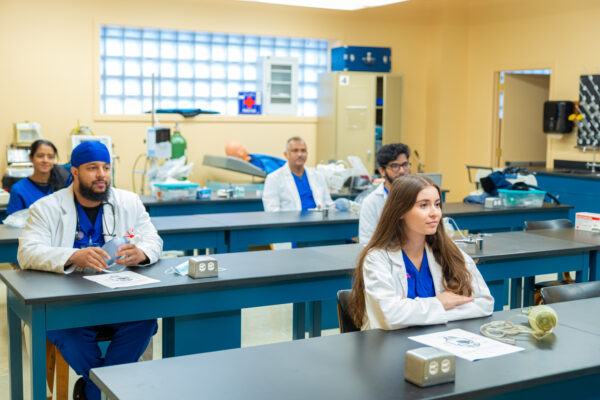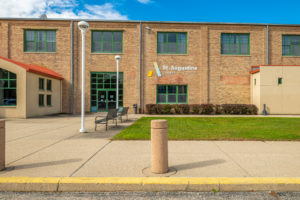Day in the Life of a Respiratory Therapy Student

7/27/23
Day in the Life of a Respiratory Therapy Medical Student
If you’ve been curious about how to become a respiratory therapist, or are just interested in attending a nontraditional form of medical school for nontraditional students, a respiratory therapy program could be the choice for you. Respiratory therapy students usually take about three years to graduate. Over the course of these six semesters, students will take a variety of classes, from biology to chemistry and more, covering both prerequisites and respiratory therapy-specific classes and labs to prepare med students for careers, and more immediately, help to prepare them for the TMC (Therapist Multiple Choice) exam and the CSE ( Clinical Simulation Exam).
Schedule of a Second Year (Pre-Respiratory) Respiratory Therapist Education
On average, every semester the day in the life of a med student in respiratory therapy will involve one or two classes. In total, respiratory therapist schooling will have students enrolled in six classes (including labs) every semester. During the first two years, students will be enrolled in prerequisite courses one is expected to do for any medical program, such as nursing:
Monday Morning – Applied Physics in Respiratory Care
Tuesday Morning – Respiratory Pharmacology
Tuesday Evening – Cardio-Pulmonary Anatomy and Physiology (plus a Lab)
Wednesday Morning – Introduction to Microbiology
Wednesday Afternoon – Microbiology Lab
These courses help lay the foundation of a medical profession, giving each student the skill set they need to not only know how to become a respiratory therapist but the skills needed to succeed anywhere in the medical field. As part of a dedicated medical team, sharing the same education prerequisites guarantees you are on the same level.
Schedule of a Third-Year Respiratory Therapist Education
During the second half of respiratory therapist schooling, the courses change from prerequisites to courses on respiratory therapy. During a day or week, in the life of a med student studying respiratory therapy, they are expected to take classes on Monday, Tuesday, and Wednesday.
Monday Morning – Mechanical Ventilation II
Monday Afternoon – Neonatal/Pediatric Respiratory Care
Monday Evening – Respiratory Care Procedures III
Tuesday Morning – Hemodynamics and Cardiac Monitoring
Tuesday Evening – Clinical Practicum II
Tuesday Evening – Clinical Practicum III
The most important semester for a respiratory therapy student is the sixth semester when students are preparing for capstone exams and board exams. Courses like RES 205 NBRC seminar and RES 212 Clinical Case Simulations will prepare them for both. Upon successful graduation, students are eligible to take the National Board for Respiratory Care credentialing exams. The first exam after graduating from respiratory therapist schooling is a TMC exam, and upon successful passing students receive the title of Certified Respiratory Therapist and are eligible to apply for a state license which will allow them to practice in the state of their choice. There is also a second exam called CSE (Clinical Simulation Exam). This exam is also administered by the National Board of Respiratory Care. Students can take this exam once they successfully pass the TMC exam. Upon completion of this exam, students will receive the title of RRT (Registered Respiratory Therapist).
Respiratory therapy students will also participate in clinical practice and internship courses carried out in a variety of Chicagoland clinical facilities, such as the University of Chicago, Northwestern Memorial, most of the Ascension Health Care Facilities, and more.
What Makes St. Augustine College’s Respiratory Therapy Education Different?
A day in the life of a medical student can be an overwhelming and stressful environment, where a combination of intense competition and a jam-packed schedule makes it so that you have to put the rest of your life on pause when you enroll in medical school. We at St. Augustine know that life isn’t so simple, and we firmly believe that all of our programs, and not just our Respiratory Therapy program, should be accessible to everyone, by allowing our courses to be flexible. By delegating courses in our Respiratory Therapy program to three days a week, we allow our students to have plenty of time to prioritize their families, their jobs, and their studies.




